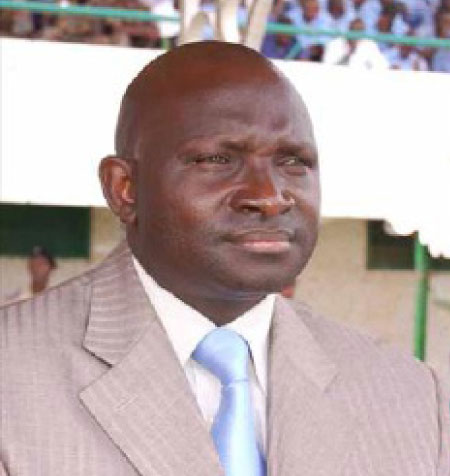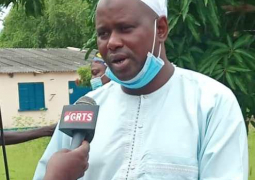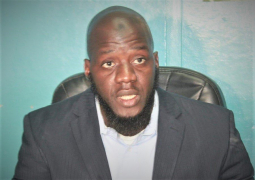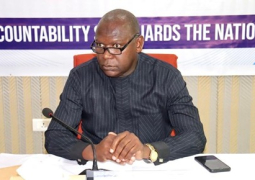
On Tuesday, January 23rd, 2024, Mr Sonko had another chance to answer questions from the court on allegations against him, while his lawyer also led him in answers to clarify his role in acts of torture and other human right violations attributed to him while serving both as Inspector General of Police and Minister for Interior in The Gambia.
Mr Sonko came to the court in a navy blue suit and a black shirt without a tie. He has clearly lost several pounds in weight compared to the days when he held and exercised power in The Gambia. The former Minister sits on a desk in the front row, facing the three-member panel of judges, next to his defence team. His lawyer is convinced that Ousman Sonko is not guilty of the crimes attributed to his client and he is working hard to convince the Court to decide so.
He has mastered the use, conveniently like an art, of the phrase, “I have no recollection” in response to charges that put him at the centre of such acts as alleged by the witnesses. In one instance during the questions with the defendant, Sonko’s lawyer asked whether he knew torture was being practiced against detainees in the country, especially by members of the Gambia Police and the National Intelligence Agency.
“I have heard that torture may have been committed at the NIA. But I knew no details as the NIA does not report to me,” he responded.
Asked what he does about such information as Minister and IGP, he said he uses the knowledge to take necessary measures that members of the force under his responsibility do not practice torture. Even when witnesses recounted acts of torture experienced under NIA, Mr Sonko said he had no powers to prosecute the members of the NIA for such acts as the agency did not operate under what he refers to as his “effective command and control.”
His lawyer, Mr Phillip Currat had referenced a case in point, when a police detective named Lamin Cham of the Major Crimes Unit of the Gambia Police walked out of an investigation panel when a witness being questioned was beaten with a hammer in front of him. Sonko said members of the Gambia Police Force under him do not participate in torture and do not use such acts in their work. “Gambia Police is a professional force as evidenced in the TRRC report,” he said.
Asked about the Junglers, Mr Sonko said he knew them as members of the Gambia Armed Forces who received commando training in Libya in 2003/2004. Subsequently, they received trainings in The Gambia but as soldiers of the Armed Forces and not as Junglers.
Sonko said he knew members of Junglers like Alhagie Martin, Musa Jammeh as members of the Bravo Company of the State Guards of The Gambia. This is the same company that Sonko had served during his time at the State Guards. However, he has no recollection of other members of the notorious hit squad like Manlafi Chorr, Nuha Badjie as Bravo Company is just one of the companies of the battalion.
He was also asked about torture meted to a witness who was a member of the Armed Forces associated with the foiled coup plot of March 2006, Sonko said what happened to the soldier was unacceptable. That he would never participate in any panel if he knew its work would require torture.
Almost all who testified from the 2006 coup detention at the NIA alleged torture. Sonko said he only learned about these crimes during court martial, not before or during the detentions.
He said Gambian constitution forbids torture but gave no specific provisions under the penal laws of the country. That pursuant to Article 37 of the Constitution of The Gambia, any person whose rights were violated through torture may petition the high court for redress. Yet there were no provisions in the Criminal Code for charging anyone for torture.
Defendant also referenced TRRC evidence to support his arguments but downplays such evidence when he is contradicted with same, saying TRRC is a truth seeking body, and not an investigation panel. He disagreed with the TRRC Report that identified him as a member of the investigation panel supervising torture of the detainees, just as several other witnesses in the trial here in Bellinzona.
Meanwhile, the court heard complete admitting evidence and testimonies from both plaintiffs and witnesses. It has adjourned sessions to March 4th 2024 when lawyers for the plaintiffs and defence counsel are expected to enter plea bargains before judgment.




